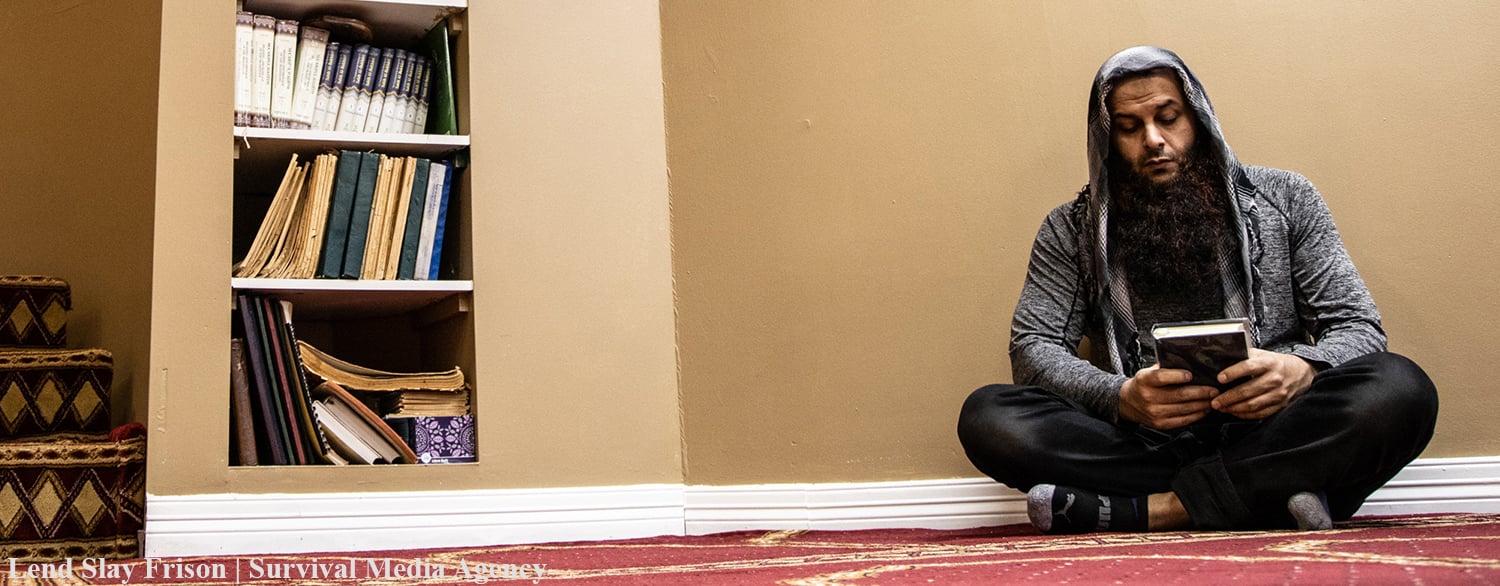Victory! On December 10, 2020, the Supreme Court unanimously ruled in our favor, upholding our clients' right to sue federal officials for damages under the Religious Freedom Restoration Act (RFRA)!
On October 6, the Supreme Court heard virtual arguments in Tanzin v. Tanvir, a case brought by American Muslims who were placed or kept on the No-Fly List in retaliation for their refusal to spy on their communities. CLEAR, the Center for Constitutional Rights, and the law firm of Debevoise & Plimpton represent the Tanvir plaintiffs. The question before the Supreme Court was whether the RFRA allows individuals to sue for damages when government officials have interfered with their freedom to practice their religion.
Listen to the argument audio, and watch a recording of the post-argument press conference.
“This happened not only to me, but other Muslims. I am fighting for them, and for all Americans.” – Muhammad Tanvir
The abuse of the No-Fly list to coerce Muslims into being informants is part of the long history of federal agents abusing their power to target Black, Brown, and Indigienous communities to do the same. The Tanvir case, which was filed in 2013, holds even more importance now as we witness an overt and well-resourced federal crackdown on a vibrant movement of protestors, with communities of color at the center, in defense of Black lives. We see the dramatic expanse of tools that federal agents are deploying to target, suppress, and surveil individuals and movements across the country – on the streets and in their homes – under the guise of “maintaining security.” The courts have a role in holding federal agents accountable for their abuses. A positive ruling in this case is one way to do so.
More about Tanzin v. Tanvir
In the last two decades, federal law enforcement, including the FBI, has expanded its domestic surveillance and intelligence gathering programs. This includes the increased use of informants who infiltrate communities and spy on the activities of millions of Americans. The three plaintiffs, Muhammad Tanvir, Jameel Algibhah, and Naveed Shinwari, were approached repeatedly by the FBI and asked to infiltrate and spy on the activities of Muslims in their own communities even though no criminal activity was taking place. All of them were opposed to doing so for religious and moral reasons.
Some of the men found themselves on the No-Fly List shortly after refusing to work for the FBI and were told by the FBI they could get off only if they agreed to become informants. Others were approached by the FBI shortly after finding themselves unable to fly and were told they would be removed from the No-Fly List if they agreed to cooperate. Because of their placement on the No-Fly List, our clients could not travel abroad and were separated for years from wives, children, and ailing parents and grandparents. They suffered years of psychological, physical, and financial hardship.
They filed a lawsuit challenging the government's abuse of the No-Fly List to coerce them to become informants. In 2015, just days before the first major oral argument in the case, the men received letters from the U.S. government confirming they were no longer on the list, proving what we already knew: they never posed any threat to aviation security and were placed on the list by the FBI agents as a form of retaliation.
Even though they were removed from the No-Fly List, our clients wanted to hold the FBI agents accountable for the harms they endured. We continued to litigate the lawsuit arguing that our clients are entitled to damages for the harms they suffered under RFRA, a congressional statute protecting minority religions. Following the Supreme Court's December 2020 decision that our clients have the right to sue for damages under RFRA, we will continue the fight for accountability in the district court.
Supreme Court
- Listen to the October 2020 argument audio
- Watch a recording of our post-argument press conference
- Read the December 2020 Supreme Court decision and our press release.
Learn about our clients and what they experienced
- Client profile: Muhammad Tanvir
- Client profile: Naveed Shinwari
- Democracy Now! Interview with Naveed Shinwari (2014)
Find out more about the lawsuit and the journey to the Supreme Court


